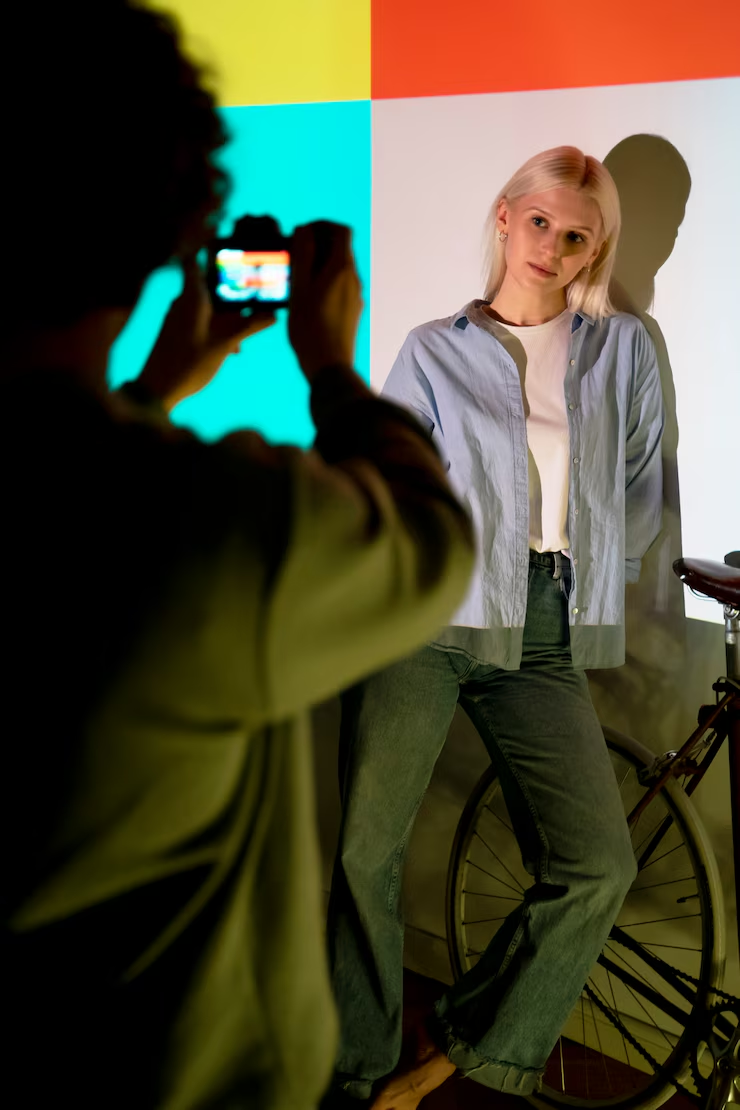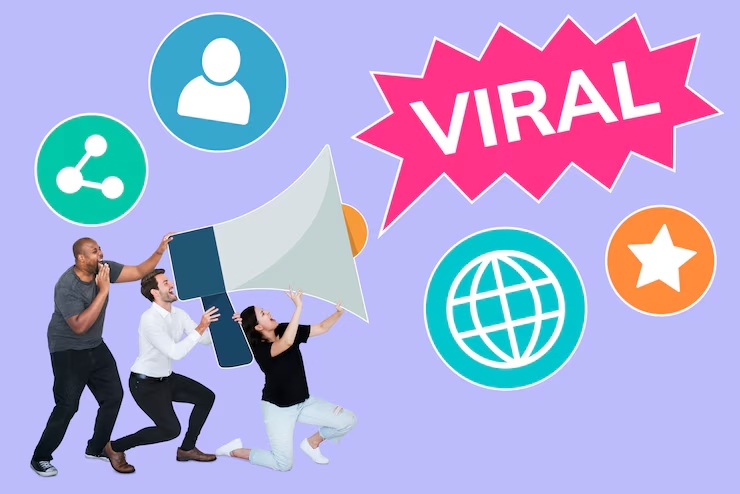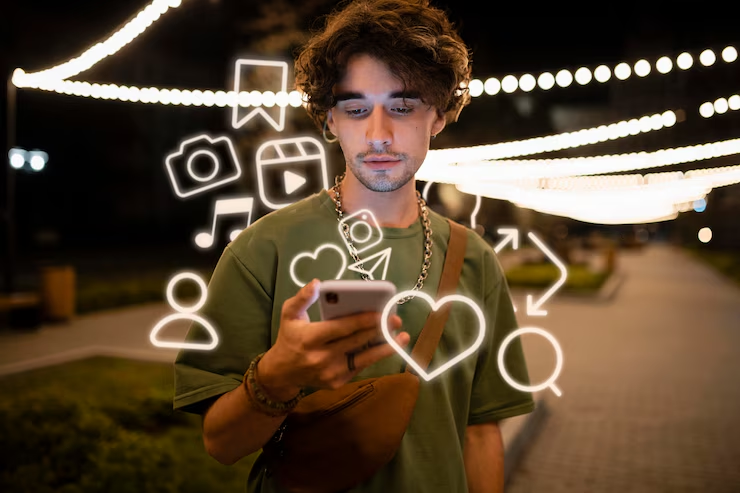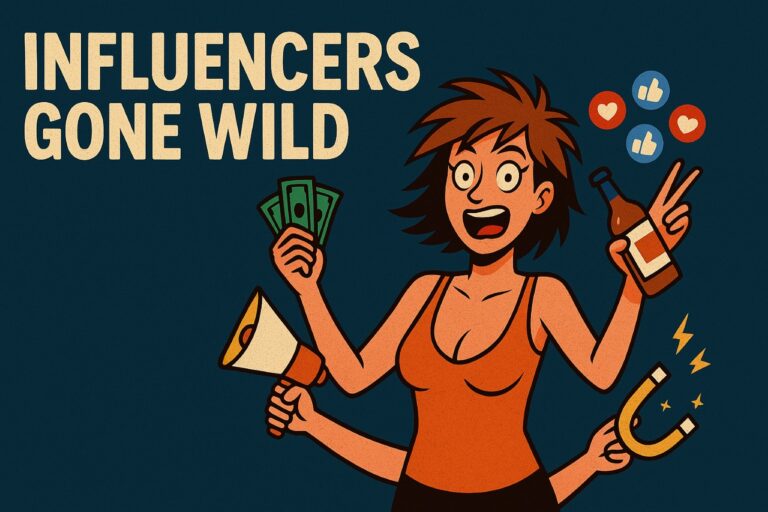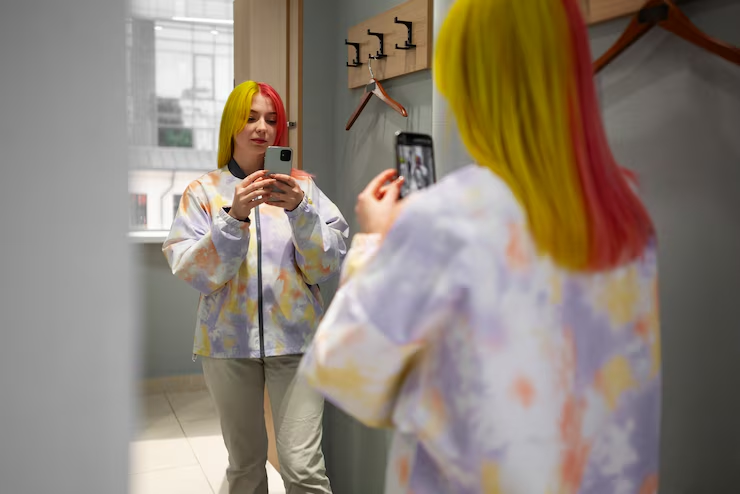Influencers Gone Wilder: The Chaos Behind the Clout
Influencers gone wilder refers to the rising trend of digital creators crossing ethical lines engaging in reckless stunts, misleading promotions, or even illegal behavior to stay relevant or go viral. It’s a wake-up call for creators, brands, and followers alike. This article explores why it’s happening, how to spot it, and what we can all do to bring authenticity, safety, and sanity back to social media.
Think of this as a heart-to-heart from a friend who’s seen behind the scenes and wants to help you navigate the chaos with clarity and care.
What Does “Influencers Gone Wilder” Really Mean?
This isn’t just about risqué photos or daring challenges. “Gone wilder” refers to a deeper shift where boundaries are tested and sometimes obliterated.
At its core, it describes influencers who:
- Deliberately engage in shock content to gain attention
- Promote fraudulent or harmful products
- Involve themselves in legal or moral controversies
- Prioritize virality over values
This shift reveals the darker consequences of turning attention into profit on social media. Where outrage equals reach, and extremes drive engagement.
Historical Context: From Fame to Fallout
Influencer marketing started as a form of authentic storytelling, often rooted in lifestyle, fashion, or travel. But as competition grew, algorithms evolved, and follower fatigue set in, many creators turned to outrage marketing.
This behavior isn’t new celebrities have long used controversy for PR, but social media’s immediacy and virality amplify the impact.
By 2020, influencer culture was under scrutiny. As of 2025, exaggerated and provocative behavior has become a normalized and often anticipated part of influencer culture.
Key Examples: Who Went Too Far and Why?
1. Chiara Ferragni – The Pandoro Cake Controversy
Italian fashion icon Chiara Ferragni faced a €1 million fine after implying that proceeds from a cake brand would support children’s hospitals. The backlash sparked what is now known as the Ferragni Law, a regulation that requires full transparency in promotional content.
2. Elvish Yadav – Parties and Snake Venom
Indian influencer Elvish Yadav was arrested for hosting a rave involving live snakes and venom, triggering charges under wildlife and narcotics laws. His rise from entertainer to outlaw made headlines across the country.
3. Bonnie Blue – “2,000 Men” Stunt
British content creator Bonnie Blue sparked major controversy by announcing a mass adult-themed event, which ultimately led to her being banned from both TikTok and Instagram. Her case raised concerns about shock content and platform accountability.
4. Kat Torres – Beyond the Screen
Authorities convicted Brazilian model and influencer Kat Torres of human trafficking and slavery—a stark reminder that influencer misconduct can escalate from unethical to criminal.
The Psychology Behind It All: Why Are They Going Wilder?
Influencers face immense pressure:
- Audiences are growing weary of over-curated, predictable content that lacks originality.
- Algorithm addiction: Outrage performs better than authenticity
- Competitive desperation: More influencers = fewer sponsorships
- Audience voyeurism: Fans reward drama with attention
It’s a perfect storm where performance replaces purpose.
Data Speaks: Current Trends in 2025
- The influencer industry is projected to grow significantly, with estimates placing its value at nearly $48 billion by 2027.
- Micro-influencer trust: Brands report 33% higher engagement with creators under 100K followers
- After controversies, nearly 8 in 10 Gen Z viewers report feeling doubtful about influencers’ authenticity and intentions.
- Regulation rise: Over 20 countries now have laws requiring ad disclosures and truth-in-promotion
(Sources: Aspire.io, AgilityPR, Forbes, Deloitte)
Who’s Watching the Watchers? Platform Policies and Regulations
As influencer scandals grow, platforms and governments are responding:
- Italy’s “Ferragni Law”: Requires influencers to clearly disclose brand deals
- In the U.S., the FTC is tightening enforcement and issuing larger penalties to influencers who fail to disclose paid promotions.
- TikTok & Instagram: Implementing AI tools to detect harmful or misleading content
- Brands: Cutting ties faster many now include ethics clauses in contracts
The era of “influencer immunity” is ending.
Can Influence Be Rebuilt After a Fall?
Redemption arcs are possible, but not guaranteed.
- Apology videos are no longer enough.
- Transparency, long-term change, and offline accountability are expected.
- Audiences are more media literate than ever. They demand depth, not drama.
Practical Advice: For Creators, Brands, and Followers
Influencers:
- Prioritize long-term trust over quick clicks
- Think beyond algorithms build real community
- Get legally literate: Understand your country’s regulations
Brands:
- Vet partnerships deeply
- Monitor influencer behavior, not just reach
- Build ethics into every contract
Followers:
- Engage with creators who uplift, educate, or entertain ethically
- Report harmful content
- Don’t feed the outrage machine
FAQs About “Influencers Gone Wilder”
Is this just about adult content?
No. It includes scams, hate speech, illegal acts, and dishonest promotions.
Can these influencers be held legally accountable?
Yes. Many have faced fines, platform bans, or even criminal charges.
How can I spot red flags as a follower?
Look for lack of transparency, sudden behavioral shifts, or repeated controversy used for growth.
Final Thoughts: When Influence Hurts More Than It Helps
In a world where being seen can feel more valuable than being good, “influencers gone wilder” is a symptom of deeper issues in our attention economy.
But there’s hope.
Audiences are evolving. Brands are being smarter. Regulators are catching up. And many influencers are returning to what made them influential in the first place: authenticity, connection, and integrity.
Influence is a gift. When used wisely, it inspires. When abused, it implodes. The choice lies with the creator and the crowd.


